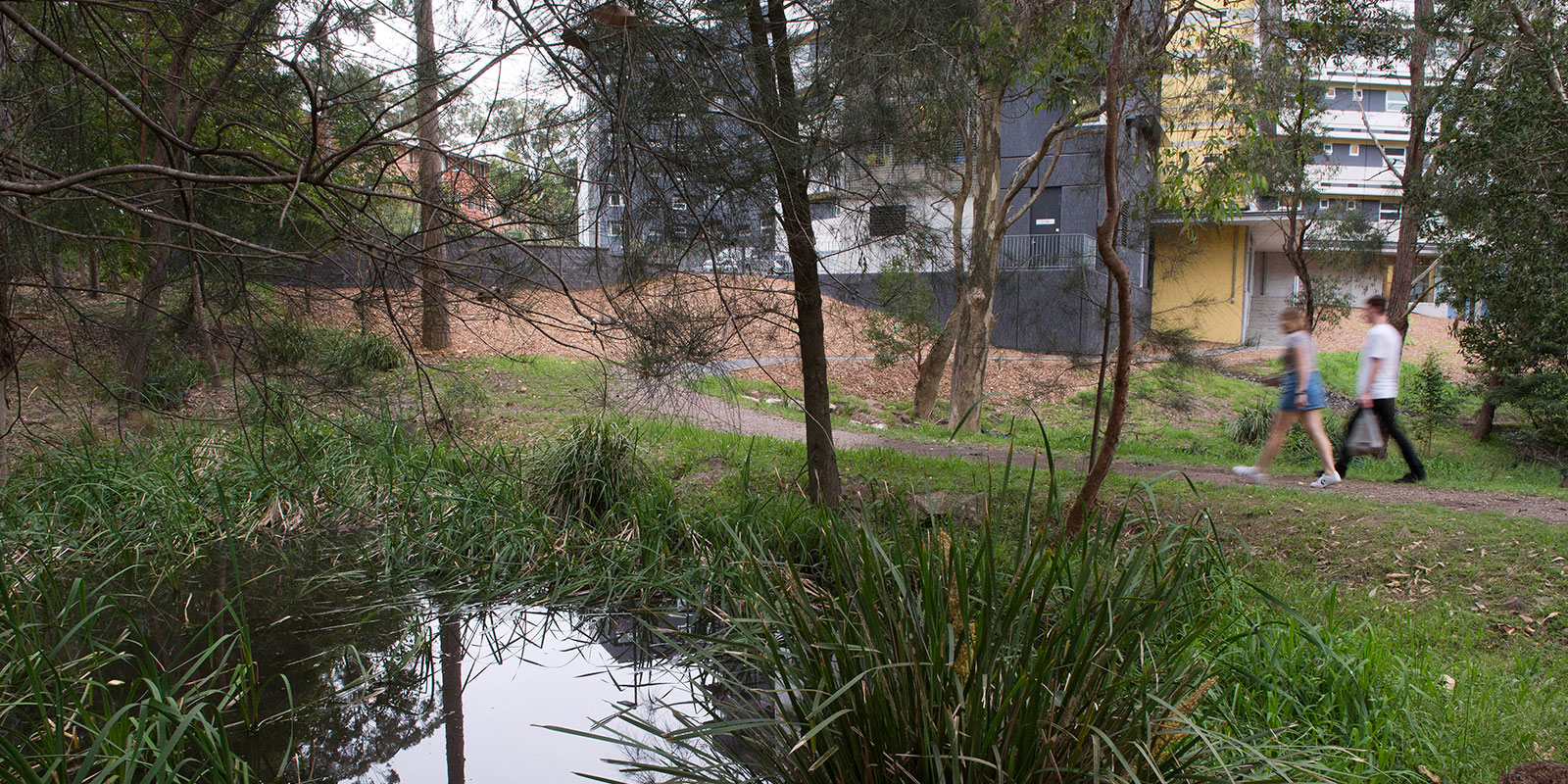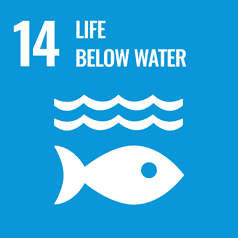

Goal 14:
Life Below Water
Reducing Marine Pollution
The University of Newcastle’s Environmental Sustainability Policy specifically addresses the prevention and reduction of marine and waterway pollution, particularly from land-based sources.
Clause 10.c of the Environmental Sustainability Policy states the University will:
This commitment applies to all University operations and aligns with broader goals of environmental protection, sustainable development, and the safeguarding of marine biodiversity.
How This Is Being Put into Practice
The University’s policy is supported by a range of practical actions aimed at reducing land-based pollutants entering aquatic systems:
- Stormwater & Drainage Controls
The Hydraulic Services Guiding Document (Section 5.7) requires that all stormwater and subsoil discharges comply with local council and NSW EPA water quality standards, helping to limit runoff of pollutants such as plastics, sediments, and chemicals. - Campus Water-Sensitive Urban Design (WSUD)
Across campus developments, the University integrates biofiltration, wetlands, and rain gardens to capture and treat runoff before it reaches waterways — a key measure in reducing non-point source pollution that contributes to marine degradation. - Plastic Waste Reduction
Through programs such as Simply Cups, Bags to Benches, and soft plastic recycling, the University actively reduces plastic waste — a major land-based pollutant that can enter marine environments via stormwater or improper disposal. - Research & Education
University researchers in the Coastal and Marine Science group are actively studying contaminant transport, ecotoxicology, and plastic pollution in estuarine and marine environments — helping to inform policy, community behaviour, and industry practices to reduce pollution at the source.
These efforts are part of a holistic approach to preventing marine pollution, demonstrating the University's leadership in sustainability and environmental governance.
How big is the small plastics problem? 3:46
The University of Newcastle acknowledges the traditional custodians of the lands within our footprint areas: Awabakal, Darkinjung, Biripai, Worimi, Wonnarua, and Eora Nations. We also pay respect to the wisdom of our Elders past and present.